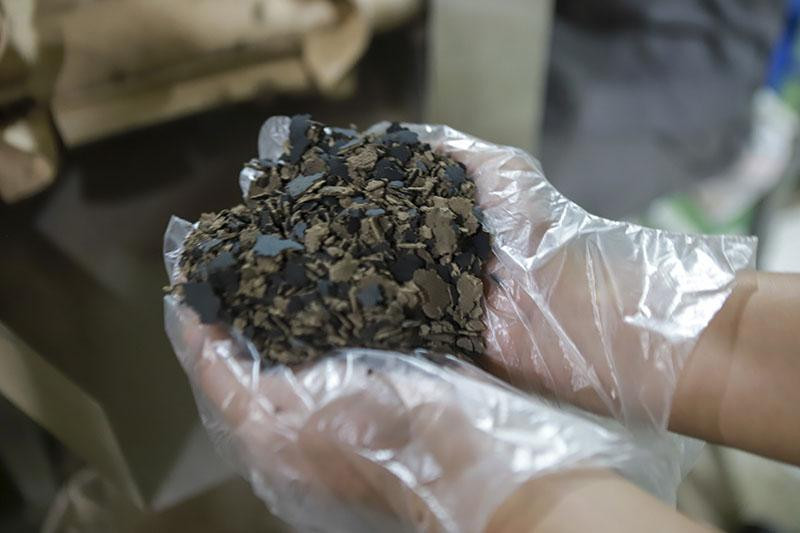
The supply, however, is insufficient to satisfy demand.
People who visit green fields in the mountainous border area of Trang Dinh in Lang Son province for the first time may mistake Asian grass jelly for a wild plant. In fact, this is a specialty of the locality which helps farmers get rich.
Ly Van Giang, a Nung ethnic minority man, said his 5-member family is growing 1.4 mau (one mau = 3,600 square meters) and all the products are sold under offtake agreements at high prices. On average, he earns VND100 million each crop.
Giang said that life was difficult in the past. Farmers grew rice in hilly and mountainous areas which brought low yields, not enough to feed their families.
The situation has changed since 2000, when people began growing Asian grass jelly which brought higher revenue than rice cultivation. However, prices were unstable because farmers mostly sold raw products to Chinese merchants. Dried products sold for only VND15,000 per kilogram.
Since 2021, Giang no longer worries about the sale of products because enterprises committed to buy all his products at VND30,000-40,000 per kilogram.
“Previously, I grew grass jelly according to traditional methods and made transactions with merchants. Now I cooperate with enterprises and cultivate according with their requirements. The selling prices are higher and the incomes are stable,” he explained, adding that one crop of grass jelly can bring income three times higher than rice.
Giang has bought a TV, refrigerator and motorbike.
Giang said his field area is small, so he cannot grow much grass jelly. Meanwhile, other families grow more and can earn hundreds of million of dong each crop. The life of local families has improved.
Ha Viet Quy, owner of a company which processes black jelly in Lang Son for export, said he works with 500 households in Trang Dinh to grow grass jelly. He is responsible for the sales outlet of the products, collecting all the products at prices negotiated between them.
Currently, Quy pays VND40,000-42,000 per kilogram.
According to Quy, black jelly is mostly exported to China and India. Customers from Taiwan, Hong Kong and Malaysia also want to buy the products, but he does not have enough products to sell to them because the growing area remains small.
Director of Lang Son Department of Agriculture and Rural Development Ly Viet Hung confirmed that prior to 2021, the grass jelly was exported raw to China across border gates. Since 2021, it has been exported through official channels to China.
Chau Giang - Duc Anh